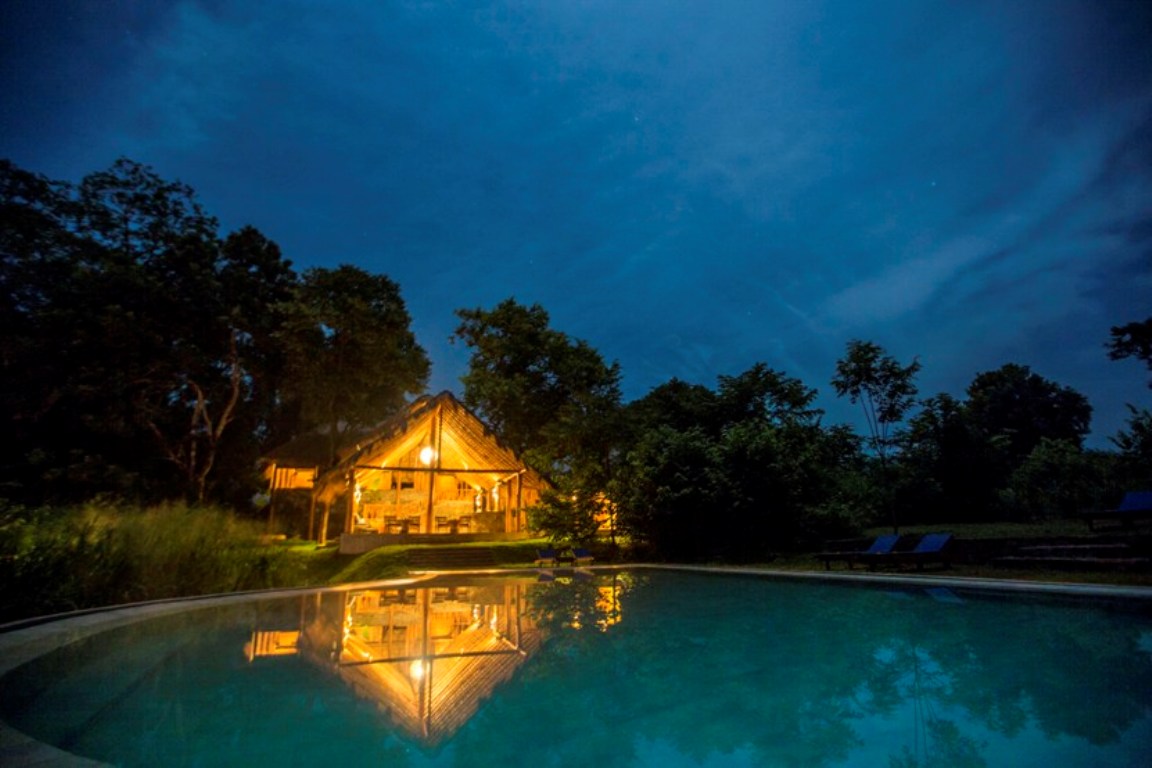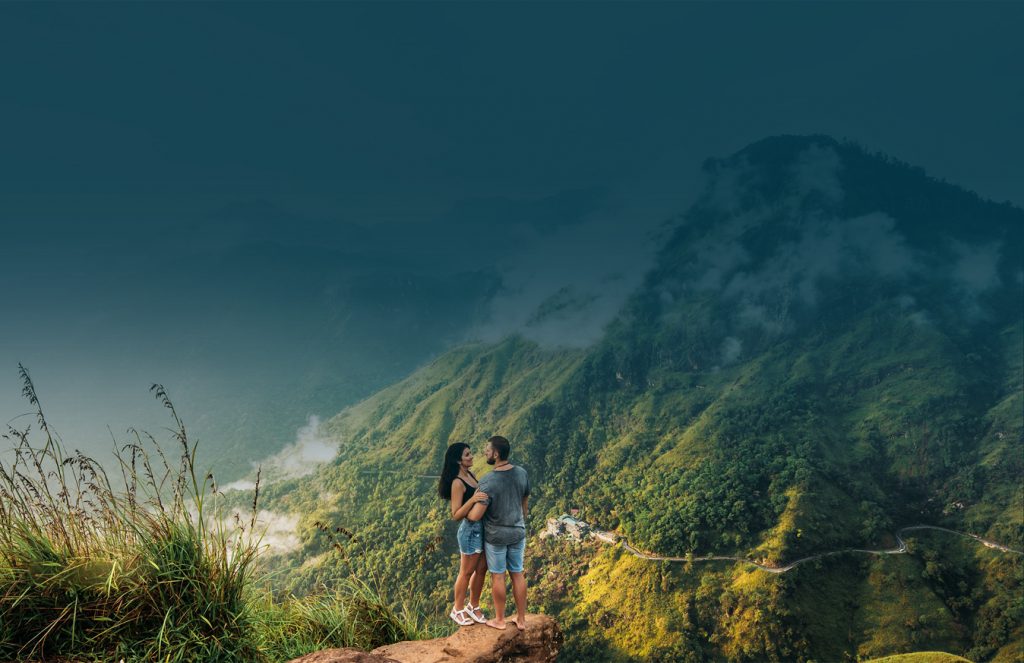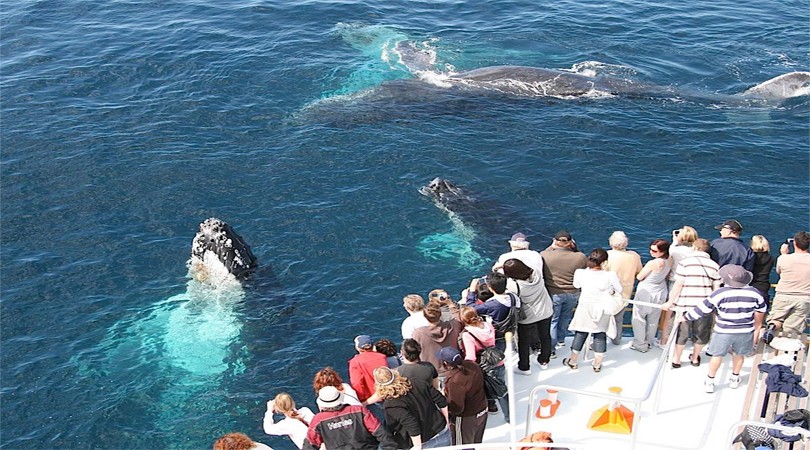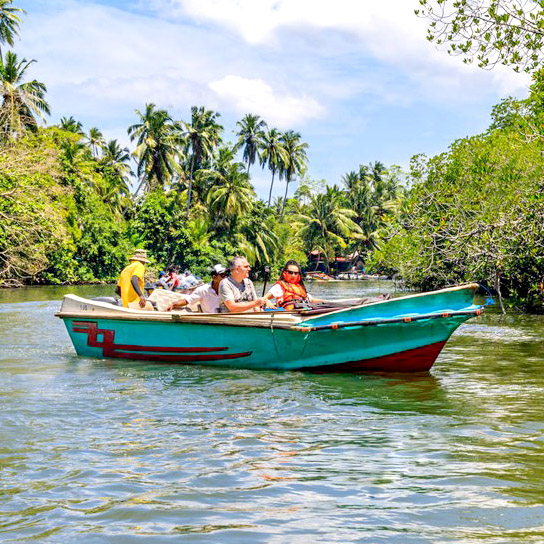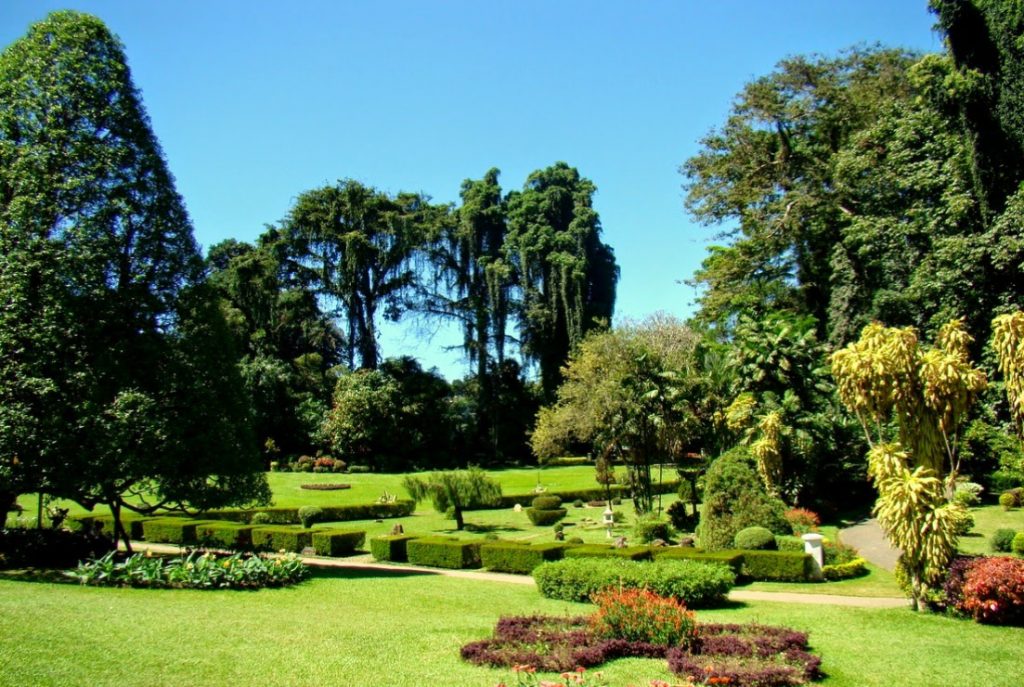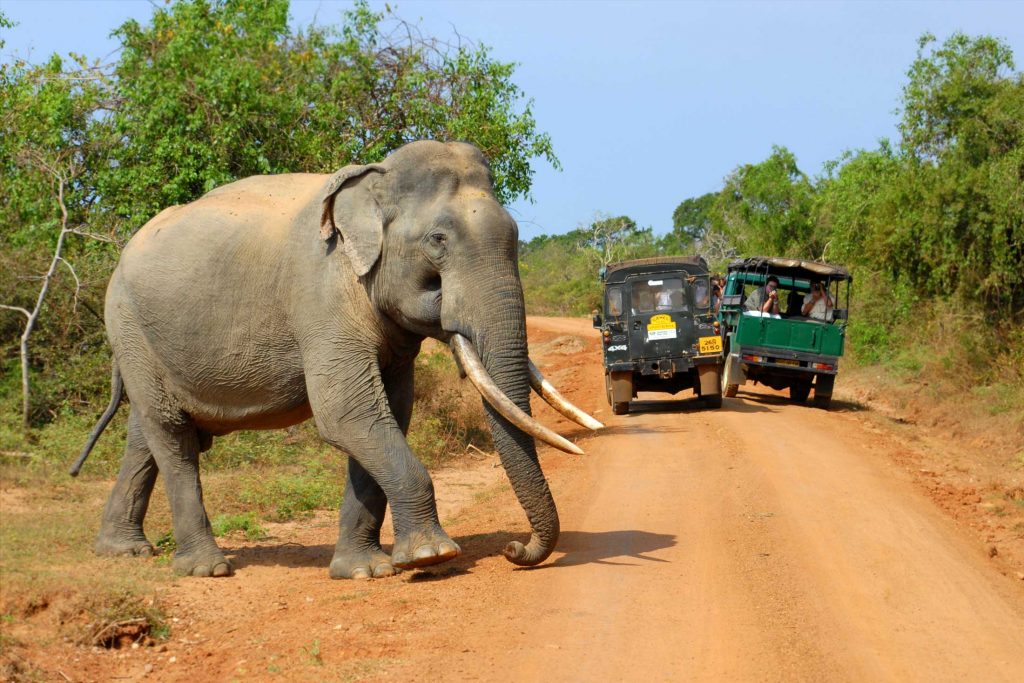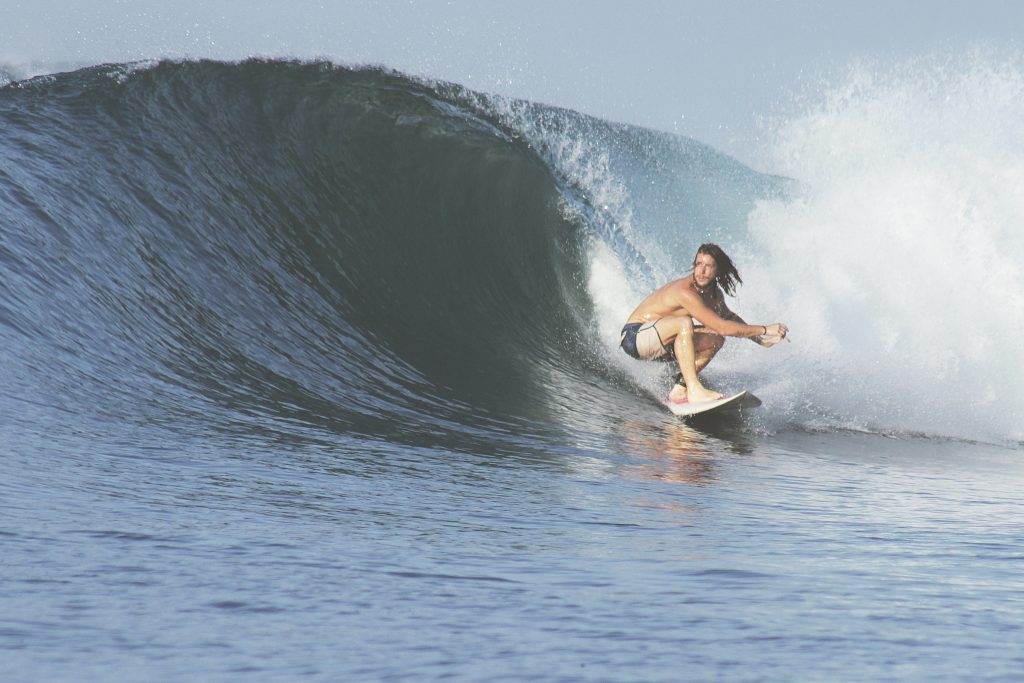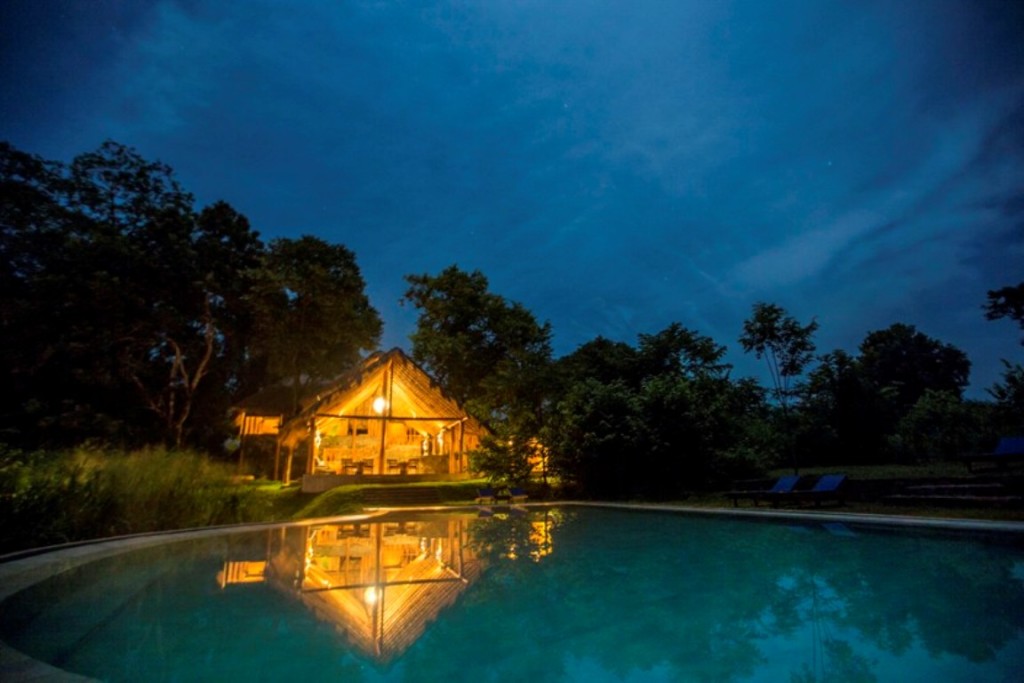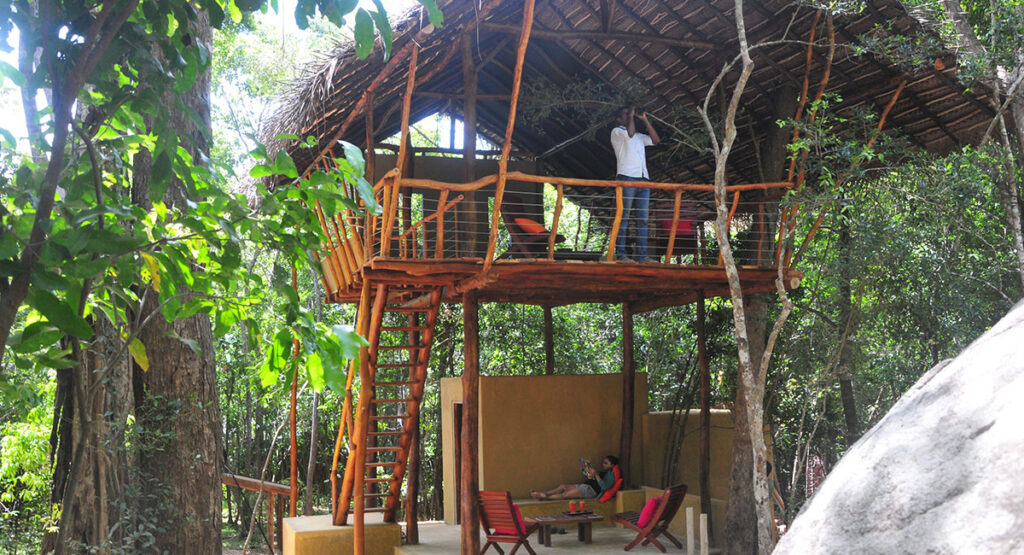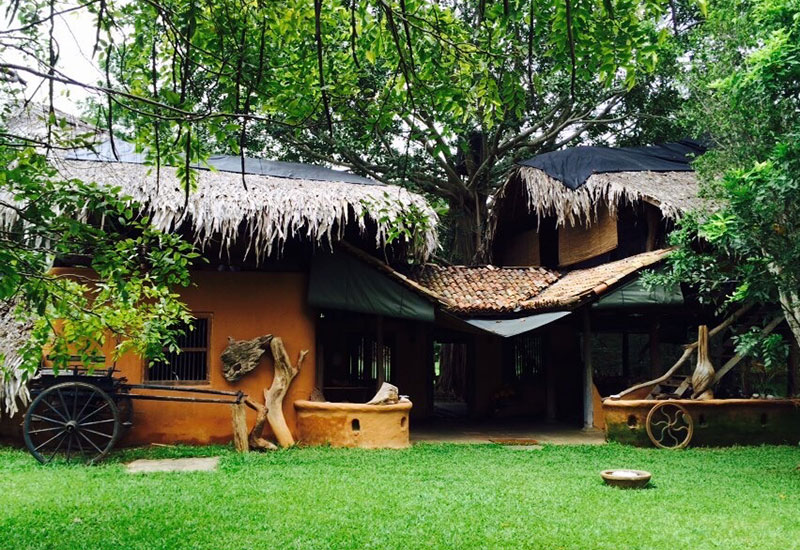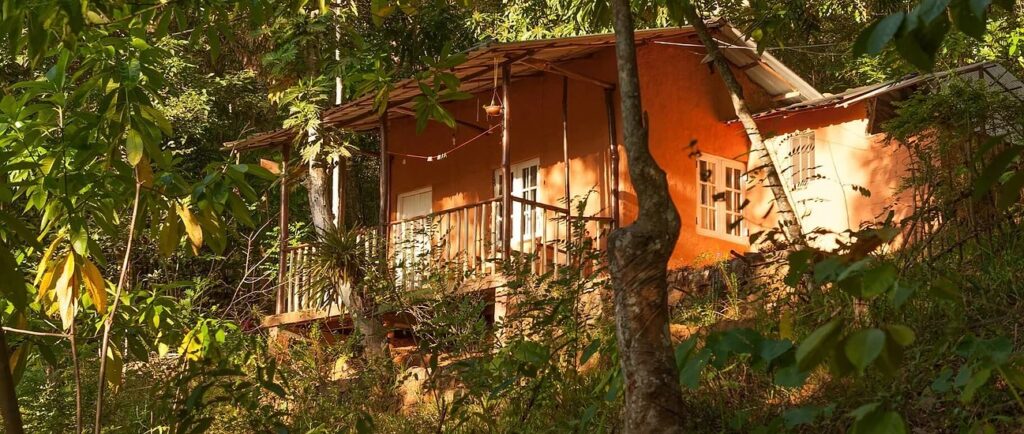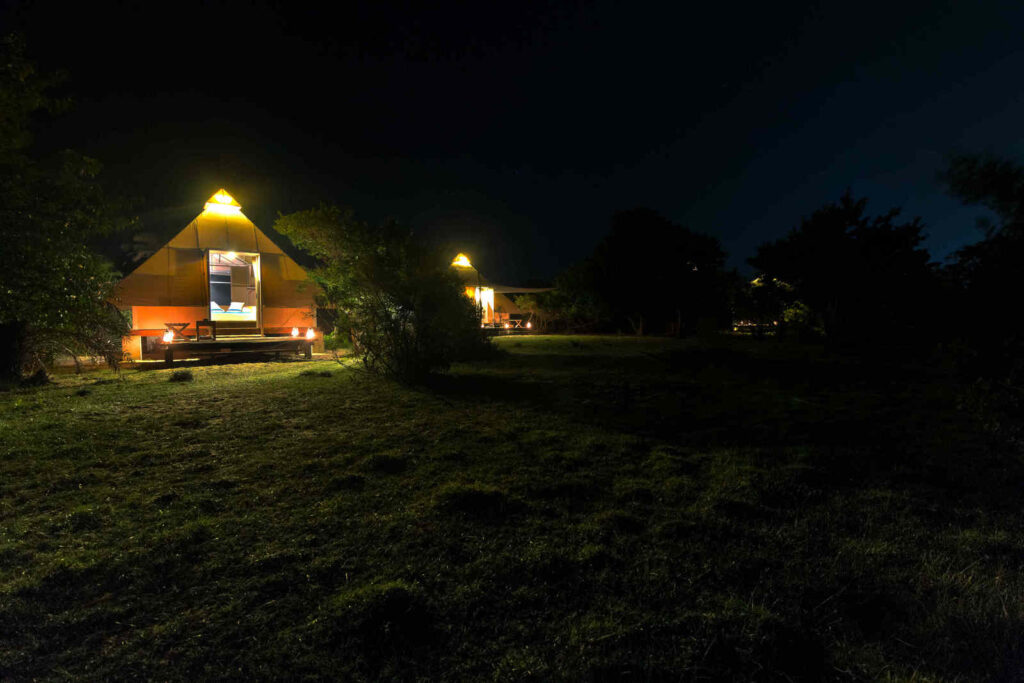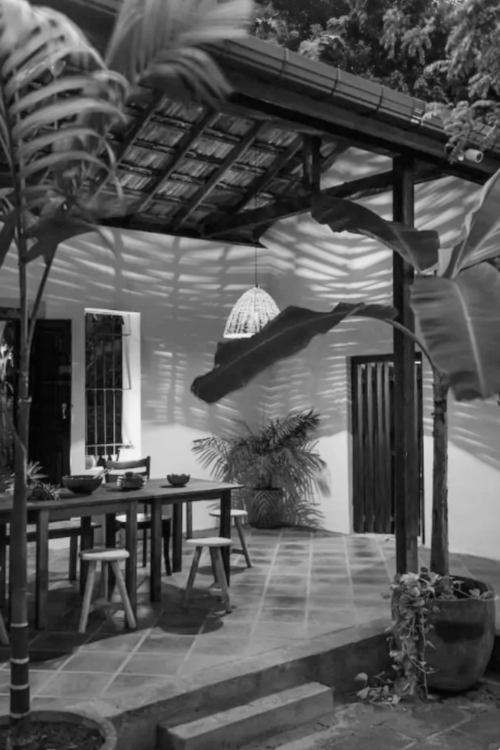As one of the most eco-friendly travel destinations in the world, Sri Lanka is a joy to explore through its eco-rich country side; it could be a river bath, a dip in the waterfall, exploring underground caves or witnessing gorgeous sunsets!
Are you new to the sustainable travel world and are wondering what is an eco-friendly holiday?
Eco-tourism is to plan a vacation that involves responsible travel to natural areas, thereby preserving the environment, and making a positive impact on the local community.
Apart from Colombo and its suburbs, the vast majority of Sri Lanka is eco-friendly. As you drive out of Colombo, you will notice the sprawling buildings melt away, being replaced by miles and miles of greenery. As you enter the Central Highlands of Sri Lanka, the luscious nature only becomes more abundant. Waterfalls, rivers, forests, tea plantations, mountains, plateaus, and native wildlife species are added to the scenery.
In this article we offer a complete list of sustainable tourism activities, introduce a few accommodation options, as well as details on eco-friendly travel tips in Sri Lanka to make the most of your eco-friendly holiday.
Eco friendly activities in Sri Lanka
Hiking and rock climbing
Escape into the Knuckles Mountain Ranges for a few days of adventurous hiking, cycling in the mountains and absorbing the unique and raw beauty of nature. In 2010, Central Sri Lanka was declared a UNESCO World Heritage Site and still boasts some unmatchable scenery. Climbing the Adam’s Peak is another adventurous eco-friendly activity for the young and the fit. The view at the top is asdolutely breathtaking so take plenty of pictures and leave behind only your footsteps for an unforgettable green adventure!
A rural village walk in Ella
Step out of your comfort zone and explore the local lifestyle with a village walk in Ella. This is a unique way to appreciate the beauty of rural towns and cities and to learn about the traditional Sri Lankan life. Stroll through scenic villages and absorb the healthy morning sunshine while you observe locals going about their day-to-day lives.
A rural village tour can be arranged anywhere on the island, depending on your itinerary in Sri Lanka. But be sure to include it as it can be one of the most interesting eco-friendly activities during your holiday!
Spot a Blue Whale off the Lankan coast
Off the coast of Mirissa in the south or Trincomalee in the east of Sri Lanka, you have an opportunity to spot the magnificent Blue and Sperm whales! Every year, these gentle giants take their migratory route past Sri Lanka, which gives thousands of visitors a chance to observe them in their natural habitat, most often leaving visitors awe-struck at the stunning sight!
Arrange for a whale watching tour with your tour operator and voila – a chance to see the world’s largest mammals without disturbing their habitat, which works very well with your sustainable tourism objective.
Take a boat trip down the Madu River
During your stay in Bentota, southern Sri Lanka, a famous boat trip to Sri Lanka’s beautiful wetlands has been attracting tourists for years. Stretching over 900 hectares, this rich and complex ecosystem comprises a total of 64 islands and the boat ride gives you access to hundreds of birds, fish, plants and animals.
You could also stop at the Buddhist Temple or Cinnamon Island during your boat tour to explore Buddhist culture and study the process of making cinnamon sticks (a popular spice in Sri Lanka). As you can see, there is absolutely no harm to the environment with this boat tour and in fact, you could stop at the fish farm and get yourself a natural pedicure by having the fish bite off all your dead skin!
Stay in the countryside and escape into nature
Ideal for the honeymooners and couples looking for some peaceful quality time, book a villa out in the countryside and immerse yourselves in the ultimate luxury of nature. Sri Lanka’s well-conserved countryside is a paradise for green travelers looking for soothing birdsongs to wake up to! With convenient access to nature, why would you want to venture into the busy cities even during your holiday? Although these villas are outside main tourist areas, they still do have convenient access to beaches and other amenities based on their geographical location.
Visit the Royal Botanical Garden in Kandy
The Royal Botanical Gardens in Peradeniya, Kandy is a bliss for the eco lovers. Located in Sri Lanka’s second largest city, one may think an eco-friendly run such as this is impossible! These gardens entail a whopping 147 acres of greenery, and over 4000 plant species spread across every corner of the garden. Well renowned for its orchid collection, the gardens also offer a variety of medicinal plants, spices, and palms. Make this attraction a must-visit, especially for those who are interested in exploring flora, as well as the spice history of Sri Lanka.
A wildlife safari in Yala
Yala National Park is the most popular of its kind in Sri Lanka and is an adventurous eco-friendly activity to add to your list. Don’t miss out on this incredible opportunity to catch a glimpse of the endangered sloth bear and the elusive leopard. Opt for a jeep safari to take you through the park and spot some of its other inhabitants such as elephants, sambar deer, monkeys, water buffalo, monitor lizard, and several other bird and animal varieties. This activity is a great experience for appreciating the incredible biodiversity in Sri Lanka. Your tour guide will ensure you drive through the park with minimum intrusion to the animals and immerse with nature and wildlife without leaving any footprints behind.
Experience the surf waters of Sri Lanka
Hikkaduwa, Ahangama, Weligama and Mirissa on the southern coast, Passikudah and Arugam Bay on the east coast, and Kalpitiya on the west coast have got some amazing waters for surf lovers and for anyone who wants to learn to surf and add it to their list of sustainable travel activities in Sri Lanka. Beating the waves on your wooden surf board does not cause any harm to the waters or marine life, and gives an immense feeling of adrenaline for the adventure junkies.
Eco friendly travel practices
- Avoid the four major plastic items that we use: plastic bags, bottles, straws and drinking cups. These four products are the biggest contributors to global pollution and you’d be reducing a whole lot of trash if you avoid using them. Today, most restaurants have switched to sustainable options such as metal straws and bamboo, but there is still a heavy use of polythene bags; so try to avoid these as much as possible.
- As an alternative to carrying around a big bottle of water as an act towards sustainability, we end up choosing convenience and opt to purchase plastic water bottles from nearby stores during our journey, while at the beach, or when on a hike. This one decision has severely impacted the environment. Hence a better alternative in terms of sustainability is to carry a reusable water bottle and fill it up from a hygienic dispenser whenever you have access to one.
- Use Reef-Friendly sunscreen when at the beach or even when you are out sightseeing. This is because our almost empty sunscreen bottles also end up in the ocean. But regular sunscreen contains chemicals which are harmful to the marine ecosystem and endangers the life of marine animals.
- A small decision such as carrying your own toiletries can make a big difference in terms of pollution because you are reducing your plastic consumption. Be a responsible traveler and pack your own shampoo, conditioner, face wash and body wash instead of purchasing new ones or using the samples provided in hotels.
- Reduce your carbon footprint as much as possible by using public transport in Sri Lanka. Although it many not be very luxurious, the public bus and rail network in the country is very strong, and it serves the sustainability purpose, and is also a budget-friendly way to travel. For short distances you could choose to walk or cycle; which in turn will give you a chance to explore the country in a different light and have a chat with the locals while you’re out exploring!
- Eco friendly hotels are the best sustainability option and Sri Lanka has a whole lot of luxurious eco-friendly hotel options across the island. Whether you are in the mountains of Nuwara Eliya or enjoying the white sand beaches of Passikuda, eco-friendly options are always available for your accommodation.
- When exploring national parks or nature reserves, don’t try to stray away from the dedicated path as this will harm the surrounding environment and could be dangerous for you as well.
- During your wildlife and nature trails, avoid disturbing the animals and refrain from feeding them. Simply resort to observing them in their natural surroundings.
- Most importantly, do not litter! Tourism hotspots often collect a lot of litter as a result of irresponsible tourists. Make sure you dispose your plastic items responsibly in an appropriate trash can.
- When shopping in Sri Lanka, be particular about the brands you are buying. Look out for products that are made in Sri Lanka. Similarly, when you choose a restaurant to eat, avoid international franchises.
- Adapt to energy saving practices as a norm wherever you go. For example, in your hotel room, switch of all unnecessary lights and air conditioning.
Staying at eco-friendly hotels and resorts
Gal Oya Lodge
With easy access to the Gal Oya National Park, this property features a stunning swimming pool and an amazing lookout to a nearby hiking point. The lodges are made from Guinea grass and the kitchen is heavily environmentally focused. Any food wastage is a treat to the ducks and pigs in the nearby farm. Grey water is filtered using sand and pebbles and used to water the plants onsite and septic tanks have been setup for composting.
The team of guides that take you through the national park are all descendants of the Veddha aboriginal community and have grown up in the area, hence have an immense knowledge of the ecological makeup and wildlife of the area. Tours with Gal Oya Lodge are a fun and intimate experience, with a unique boat safari, breakfast on the river bed, sunrise over the jungle, and a national park experience that cannot be seen anywhere else!
Polwaththa Eco Lodge
Located in Digana, just 30 minutes from the hill capital – Kandy, Polwaththa Eco Lodge is a peaceful escape from city life. Amidst a small jungle, Polwaththa, which translates to ‘coconut estate’, is a family-owned rustic ecolodge. They have ten lodges and two homestays, offering a blend of comfort, immersion, privacy and true Sri Lankan hospitality. The cabins are green and include solar powered water heaters.
All meals are made from local ingredients, and breakfast is accompanied by organic coffee grown on the property. The staff comprises neighboring communities and are eagerly waiting to show travelers their day tour offerings with boat tours and safaris.
The owner himself runs a shop on site selling hemp and other eco-friendly products handmade by women in the surrounding villages. Their reforestation project entails planting ayurvedic, fruit and herbal trees with the help of nearby locals.
With a strong passion for environmental well-being and community empowerment, the couple aims to provide restful days among nature for those looking to stay away from city life.
Banyan Camp – Udawalawe
Looking for an off-the-grid eco retreat in rural Sri Lanka? The Banyan Camp has got you covered with its scavenged doors and windows, and furnished with driftwood furniture. One of the rooms known as the Mercedes Lodge is made from an old Mercedes bus from 1971 and has a thatched roof made with dry grass! This unique outdoor room is a highly demanded lodge often referred to as a “dream on wheels”.
The retreat itself blends with its natural surroundings and leaves, aiming at hardly any carbon footprint. One of the main attractions here is the easy access to Udawalawe National Park, which is popular for an encounter with wild elephants. The Banyan Camp is also an ideal location for those seeking to explore waterfalls, exotic birds and fresh mountain air.
Kodev Kalpitiya
Ever thought about a camping experience on the beach? That too with ultimate comfort and luxury? Kodev Kalpitiya offers isolated beaches, stunning sunsets, and an ideal sky for stargazing. From kitesurfing to safari tours, crab hunting and island hopping, this glamping experience offers something for everyone!
Built on a natural mangrove reserve overlooking the Kalpitiya lagoon and the Indian Ocean, the tented camps at Kodev are modern, comfortable and built with conservative materials. The tents were built on existing patches of bare land, with no clear-cutting, and the property is powered with solar energy. Kodev Kalpitiya lets you indulge in luxury travel without being guilty of leaving carbon footprints during your holiday.
Back of Beyond
Back of Beyond is a brand that offers several sustainable accommodation retreats across the island. Their Dehigaha Ela, Kahandamodara, Pidurangala, Yala, Anuradhapura, Negombo, Ullapan and Sigiriya locations have been planned and developed with minimum possible disruption to their surrounding areas. Their sustainability initiative collects rainwater in mini lakes, which have become a life-saving source for the wildlife when the dry season sets in.
The Anuradhapura property of Back of Beyond is a favorite amongst most guests; a modern and comfortable bungalow with a tree-filled garden. You could also try the Sigiriya camp if you prefer to sleep in a tent or tree house. Both these locations are within the cultural triangle of Sri Lanka, giving you easy access to ancient cities and well-preserved historical ruins.
The Kip (Ahangama)
A former fisherman’s house was converted to a charming four-bedroom home in Ahangama, named as The Kip. Tucked away in a traditional village, surrounded by lively jungles, and a short walk from an isolated beach, The Kip caters to the more slow-paced life in Sri Lanka. Ahangama beach is ideal for surf lovers, offering some of the best surf waters in Sri Lanka. You could also meet fascinating locals here and learn more about Sri Lankan tradition, religions and culture. The Kip café offers organic Sri Lankan dishes made with ingredients from their garden.

